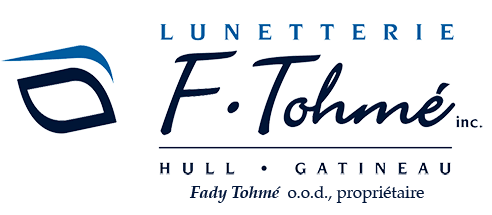Taking care of your eyesight is essential at any age. At Lunetterie F. Tohmé, your optometrist in Gatineau and Hull, we put our expertise at the service of your eye health. Discover why regular consultation is essential and how our personalized services can improve your quality of life.
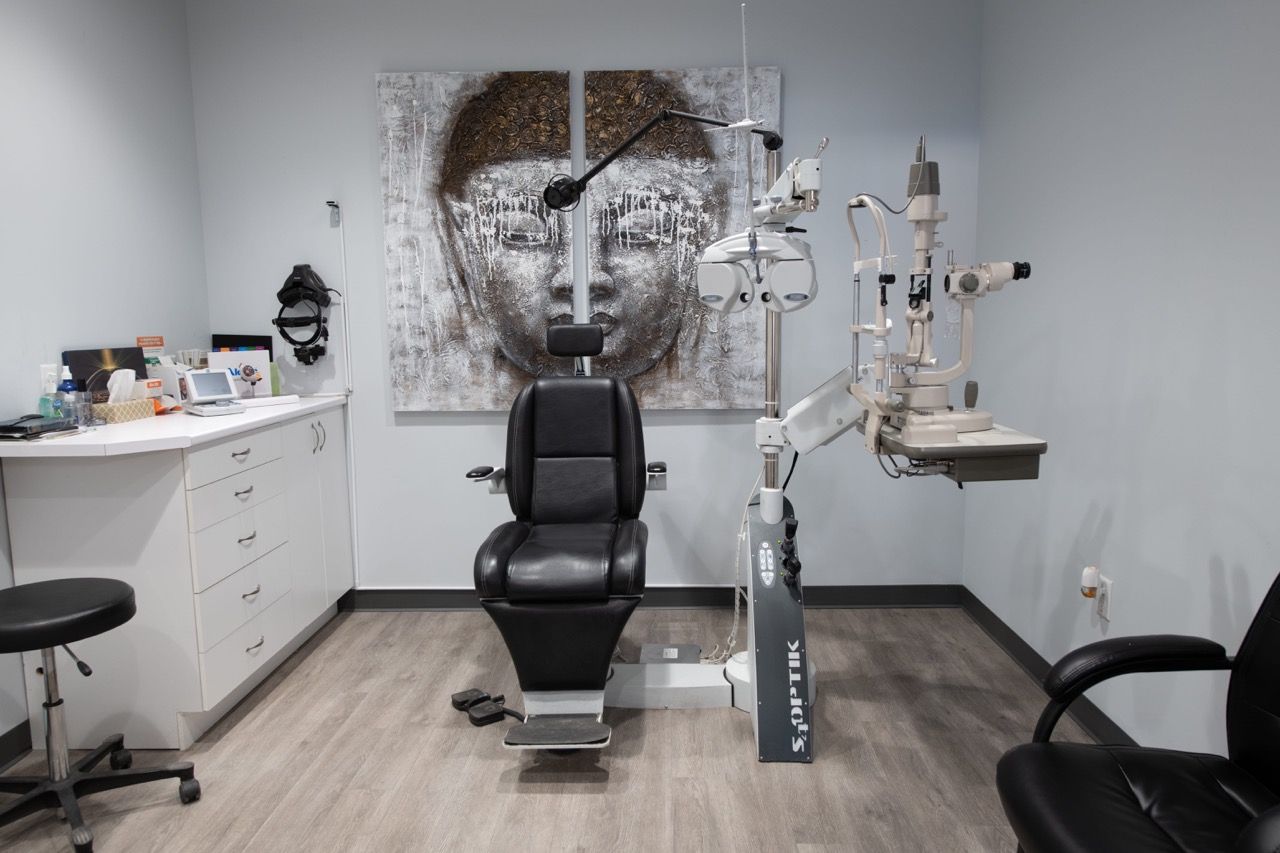
Why consult an optometrist regularly?
An optometrist is much more than just an eye care specialist. They are a healthcare professional trained to:
- Evaluate and correct vision problems: Whether it's myopia, hyperopia, astigmatism or presbyopia, we find the right solution.
- Detect eye diseases: Many conditions (glaucoma, cataracts, macular degeneration) can be identified and treated early.
- Providing customized solutions: Whether it's glasses, contact lenses, or specific advice, we tailor our recommendations to your needs and lifestyle.
- Ensure complete monitoring: Regular checkups help maintain optimal vision and prevent potential problems.
The Importance of Eye Examination at Every Age:
- For children: Early detection of vision problems is crucial for their academic and social development. Good vision is the foundation for learning.
- For adults: Regular check-ups help you adapt to lifestyle changes (working at a screen, driving) and detect signs of general illnesses (diabetes, hypertension) that can affect the eyes.
Your eye care expert in Gatineau and Hull
At Lunetterie F. Tohmé, we are committed to providing a personalized approach and superior care. While a self-eye exam can provide insight, it never replaces a thorough evaluation by your doctor. optometrist in GatineauWe use state-of-the-art equipment to ensure accurate diagnosis and effective solutions.
Don't wait any longer! For a comprehensive eye exam and personalized advice for a
eye health optimal, contact Lunetterie F. Tohmé today.
Two optometrists to serve you better: Lunetterie F. Tohmé in Gatineau and Hull
At the house of F. Tohmé Eyewear, your visual health is our top priority. To offer you local service and cutting-edge expertise, we are proud to offer you the presence of two qualified optometrists within our branches. This means that you have access to a dedicated professional in each of our clinics, whether at Gatineau or to Hull.
We understand the importance of fast and easy access to eye care. That's why having a full-time optometrist in each location allows us to guarantee increased flexibility for your appointments and personalized follow-up. Whether you need a comprehensive eye exam, a contact lens fitting, or eye disease screening, our experts are here for you.
Our optometrists work closely with our optician team to ensure a seamless experience, from the initial examination to choosing your glasses or lenses. They are equipped with the latest technology for an accurate diagnosis and advice tailored to your visual needs and lifestyle.
Come meet our dedicated professionals. Book an appointment today at the branch of your choice, at Gatineau or to Hull, and let F. Tohmé Eyewear take care of your eyes with the professionalism and attention you deserve.
Here are some situations where it is recommended to have an eye exam more frequently:
- From age 40: Age-related vision changes, such as presbyopia (difficulty seeing up close), may appear from this age. It is recommended to have an eye exam every one to two years to monitor these changes.
- If you wear contact lenses: Contact lens wearers should have their eyes checked annually or as recommended by their eye care professional.
- If you have a family history of eye disease: If eye problems such as glaucoma, age-related macular degeneration (AMD), or inherited retinal diseases run in your family, you should have regular screenings.
- If you have eye symptoms: If you experience symptoms such as eye pain, blurred vision, flashes of light, spots in the field of vision or any other visual abnormalities, it is recommended that you consult an eye health professional immediately.
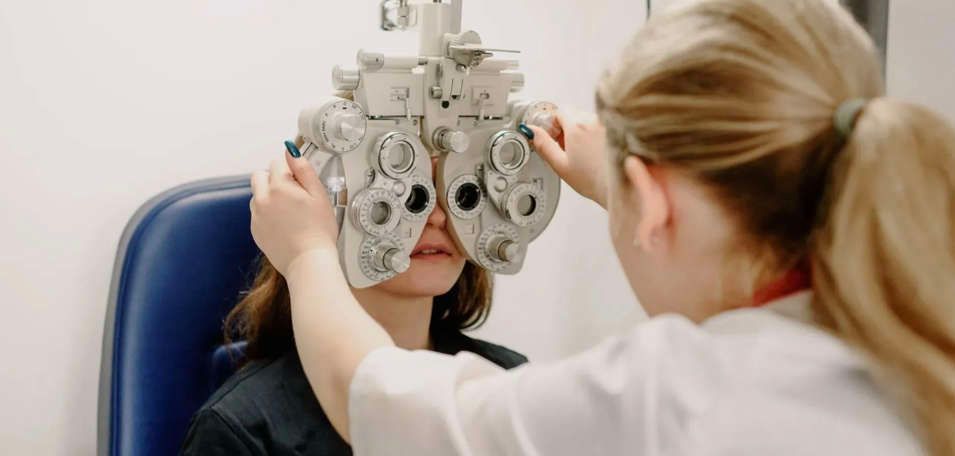
It's important to note that these recommendations may vary depending on individual factors, healthcare professional recommendations, and specific guidelines in your country or region. It's always best to consult an eye care professional for personalized advice on eye exam frequency.
At the F. Tohmé Eyewear, we offer eye exams performed by qualified optometrists. If you would like to schedule an appointment for an eye exam, I recommend contacting the F. Tohmé eyewear or consult our website for specific information about our services.
The importance of consulting an optometrist for a child.
Eye health plays a vital role in a child's overall development. To ensure their vision develops optimally, it is crucial to visit an optometrist regularly. Here are some key points that highlight why this is so vital to your child's well-being:
- Early detection of vision problems: Children are not always aware of vision problems because they may think that what they see is normal.
optometrist is trained to spot signs of vision problems such as
myopia, hyperopia, astigmatism and even some more serious eye conditions. Early detection allows for appropriate corrective action to be taken early on, thus avoiding potential complications.
- Impact on learning: Vision plays a key role in children's learning. Uncorrected vision problems can lead to difficulty reading, writing, and concentrating in class. Children may be mistakenly labeled as having learning disabilities, when the root of the problem may be related to their vision. Clear vision is essential for effectively absorbing information at school.
- Coordination and motor development: Adequate vision is necessary for the development of hand-eye coordination and fine motor skills. Everyday activities such as writing, cutting, and playing rely on accurate vision.
optometrist can assess whether a child has vision-related coordination difficulties and recommend measures to help improve these skills.
- Prevention of future problems: Untreated vision problems during childhood can have repercussions well into adulthood. Uncorrected conditions can worsen over time and lead to more serious complications. By intervening early, a
optometrist may help minimize the risk of permanent vision problems in adulthood.
- Confidence and self-esteem: Clear vision is linked to self-confidence and self-esteem in children. Unresolved vision difficulties could affect how a child interacts with their environment and peers. Corrected vision can help a child feel more comfortable and confident, thus promoting their social and emotional development.
- Regular monitoring and adaptation: A child's vision changes over time as they grow. optometrist can provide regular monitoring to ensure vision correction is still adequate and adjust prescriptions as needed. A child's vision needs can change quickly, so it is important to maintain careful monitoring.
The importance of consulting an optometrist as an adult
Visual health remains a priority at any age, and consulting a optometrist Regularly is just as crucial for adults as it is for children.
- Early detection of vision problems: Even if you've had clear vision your whole life, vision problems can arise over time. Conditions such as presbyopia (difficulty seeing up close as you get older) and chronic eye diseases like glaucoma and age-related macular degeneration can develop gradually.
optometrist can detect these problems at an early stage, when treatments are often more effective.
- Adapting to lifestyle changes: Adulthood is often marked by lifestyle changes, such as spending long hours in front of computer screens, tablets, and smartphones. This can lead to digital eye strain, dry eyes, and other vision problems. An optometrist can provide advice and solutions to prevent these harmful effects on your vision.
- General health:
The eyes can provide valuable clues about your overall health.
eye examination can sometimes reveal early signs of diseases such as diabetes, hypertension and even certain neurological disorders. A visit to theoptometrist can therefore also serve as a screening tool for other health problems.
- Personalized visual correction: The vision correction you need may change over time. When you consult a
optometrist, he assesses your current vision and can adjust your prescription if necessary. Clear vision is essential to maintain optimal productivity at work and fully enjoy your daily activities.
- Tips for preserving vision: THE
optometrists do not just provide prescriptions for
glasses or of
contact lensesThey can also advise you on best practices for preserving your vision. This may include advice on protecting yourself from harmful UV rays, suggestions for maintaining good eye hygiene, and strategies for preventing eye strain.
- Maintaining quality of life: Clear vision contributes greatly to your overall quality of life. It allows you to enjoy the activities you love, stay connected with loved ones, and continue to be active and independent. By maintaining good visual health, you can preserve your independence and well-being.
Do an eye exam alone.
Having an eye exam alone can give a general idea of your visual acuity, but it is important to note that it is not a substitute for a visit to a eye health professional. A complete examination carried out by a optometrist is recommended to accurately assess your eye health. However, here are some simple steps you can follow to perform a basic eye exam at home:
1. Visual acuity test:
- Stand about 3 meters from a visual acuity test poster or screen.
- Cover one eye with one hand (use an eye patch if you have one) and read the letters or numbers displayed.
- Write down the letters or numbers that you can read correctly.
- Repeat the same step with the other eye.
- If you wear glasses or contact lenses, perform the test once without correction and once with correction.
2. Near vision test:
- Hold a book or newspaper at a normal reading distance.
- Read the text and note if you have any difficulty seeing up close.
- This can give you an idea of your near acuity.
3. Color vision test:
- If you'd like, you can take a quick color vision test using online tests. Look for color blindness test images (such as numbers hidden in colored circles) and see if you can identify the numbers.
4. Amsler test:
- If you have central vision problems, an Amsler test may be helpful. This is a grid with straight lines that resemble a grid. Focus your gaze on the center point of the grid and note if you notice any blurry areas, distortions, or missing lines.
However, it is important to emphasize that these tests are indicative and do not replace a thorough professional assessment. THE
optometrists use a variety of specialized tools and tests to assess eye health, vision correction, and overall eye health.
→ If you experience any visual problems, changes in your vision or have any concerns,
It is strongly recommended to consult an eye health professional for a complete and accurate examination.
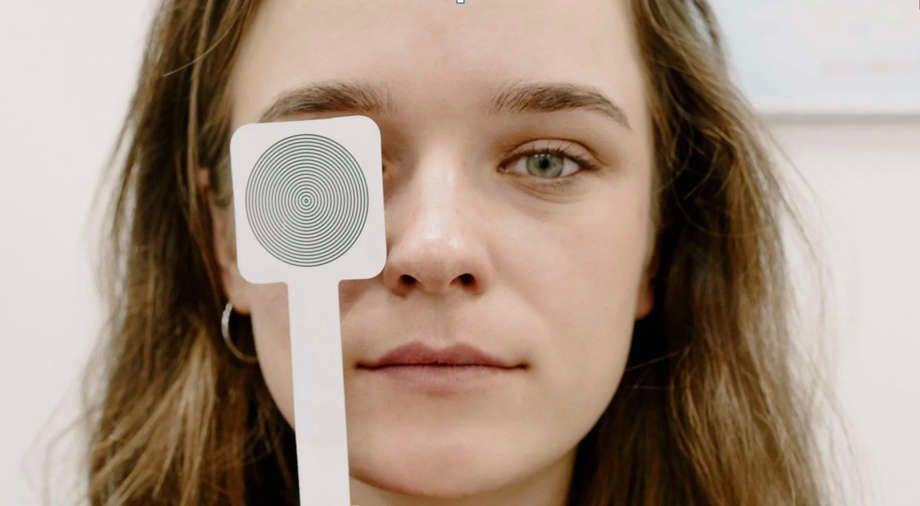
In conclusion, the health of our eyes is precious, and it is essential to consult a
optometrist qualified to ensure optimal vision.
F. Tohmé Eyewear stands out for its expertise, quality service and commitment to customer satisfaction.
Optometrist Gatineau
Farmer's Square
64-C, boulevard Gréber
Gatineau (Quebec) J8T 3P8
819-246-1699
Optometrist Hull
Fleur de Lys Square
450-B, Boulevard St-Joseph
Gatineau (Quebec) J8Y 3Y7
819-776-0188
Optometry:
The term optometry comes from the ancient Greek words ὄψις / ópsis and μέτρον / métron. The root of the word opto, is a shortened form derived from the Greek word ophthalmos meaning "the eye". According to the World Council of Optometry definition, the only existing international definition, optometrists are:
→
“Eye and visual system health professionals who provide a comprehensive eye and vision service, which includes refraction and provision of optical equipment, detection/diagnosis, monitoring of eye diseases and rehabilitation of the visual system.
»


